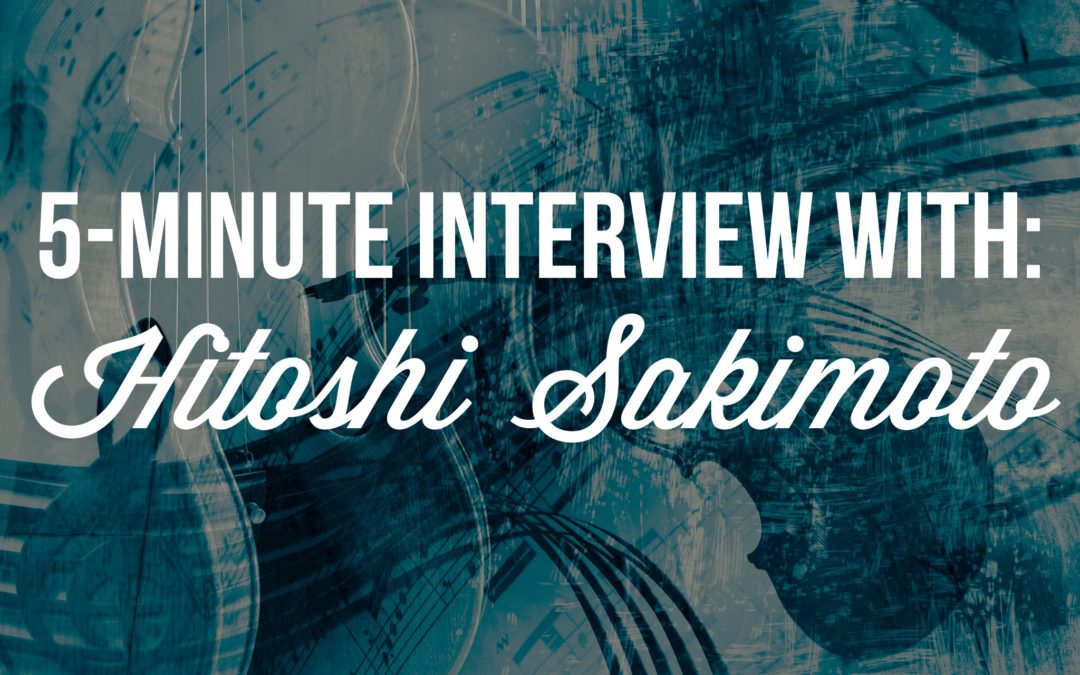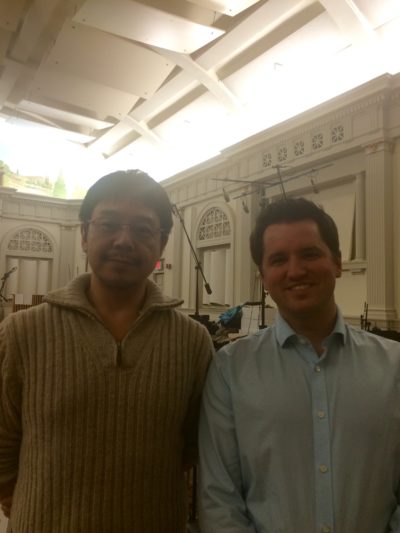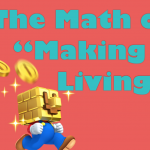Last week, I had a rare opportunity to meet and interview one of the legends in video game music: Hitoshi Sakimoto (Final Fantasy Tactics, Final Fantasy XII, Valkyria Chronicles). The catch? I had no idea I was going to meet him until I was sitting next to the man! Sakimoto-san was extremely polite and generously agreed to answer a few questions for the VGM Academy community. Before reading/listening on, here are a few things to keep in mind:
- I had no idea I would be interviewing him, but I did my best to ask some on-the-spot questions that would be valuable.
- All I had with me to record was my iPhone. Please excuse the audio quality.
- I caught him at the end of a long day (the 4th of 5 long days in a row in for the recording session), so I kept it brief.
- Before the interview, Sakimoto-san admitted that his English is “not the best”. Since I speak absolutely zero Japanese, we braved the conversation in English without the aid of a translator. The language barrier was a bit of a challenge, but we got through it!
Here’s how it went down: After my recent vocal recording session with the Boston-based SoundtRec – and their companion performance ensemble, the Video Game Orchestra – for the Final Fantasy XV trailer, I was invited to visit the recording studio and listen in on an upcoming project. I showed up a couple hours before the end of day 4 of recording, quietly slipped into the recording booth, and took a seat next to a man who was seated at a table glancing at a stack of papers. As I listened to the string players recording various parts, I realized that I was sitting next to none other than Hitoshi Sakimoto himself!
He quietly followed the score as the orchestra worked, providing feedback or approval when necessary, and as soon as players took a 15 minute break he stood up to introduce himself. The recording session was an intensive 5-day stretch to record the strings for a project which Sakimoto-san worked on (no, I can’t tell you what it’s for yet – sorry!), and I got to sit next to him as he worked and the strings recorded. It was a real treat!
Here’s the raw audio, or you can read the text summary below:
Question #1: “Do you any routines that you do every day with your writing to keep your momentum up and avoid any obstacles? Anything that you do every single day as a habit?”
Sakimoto-san: “[laughs] I really don’t, but I’m a composer and at the same time … I’m boss of my company, so I have to do lots of this work (referring to non-music business activities) … I’m not sure.”
Hitoshi Sakimoto (composer) and Dan Hulsman (VGMAcademy.com)
Question #2: Musically speaking, what would you say is one of your greatest strengths in your writing? What are you best at?
Note: I believe this question was misunderstood as “What is your best music?”
Sakimoto-san: “I usually like my latest ones. I did write some new tracks for this project, but I can’t say that… So… Maybe Valiant Force is already published or announced. It is latest work, so I like it.”
Question #3: “What would you say is one of the biggest mistakes that new composers make?”
Sakimoto-san: “I can’t say about mistakes, but usually composers want to take care of the music for a long time because maybe they have something to modify, make it better. So they want to continue composing the music for a long time, but you have to finish it in a short time and write the new music. Write more and more: It makes a composer stronger, tough, better.”
Question #4: Do you write at the piano or do you write at the computer?
Sakimoto-san: “Usually I start up the sequencer and I play the piano solo. I play the piano for a sketch and it is recorded in the sequencer, and if I have good ideas I can combine – not combine – make the pieces into music. And after that, I orchestrate the music or I arrange the music.”
Question #5: Do you come up with the orchestration or instrumentation first when writing the sketch, or do you do that after the sketch is complete?
Sakimoto-san: “It depends on the music, but I usually just make the musical notes and do the arrangement later. So, at the beginning I don’t have any idea of the orchestration or arrangement.”










Interesting final comment! “It depends on the music, but I usually just make the musical notes and do the arrangement later. So, at the beginning I don’t have any idea of the orchestration or arrangement.”
I love seeing how everyone works so differently. For me, the orchestration can and often happens simultaneously with the note-writing process.
I actually think think this is maybe the most important thing he shared – he writes a complete tune on piano, and THEN dolls it up. That means that he can focus 100% on song craft before moving on to orchestration.